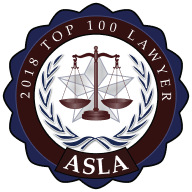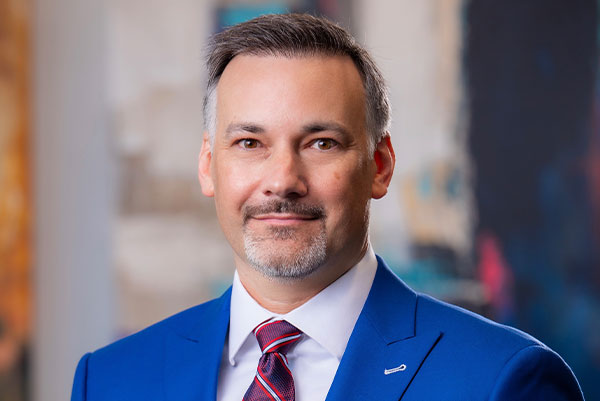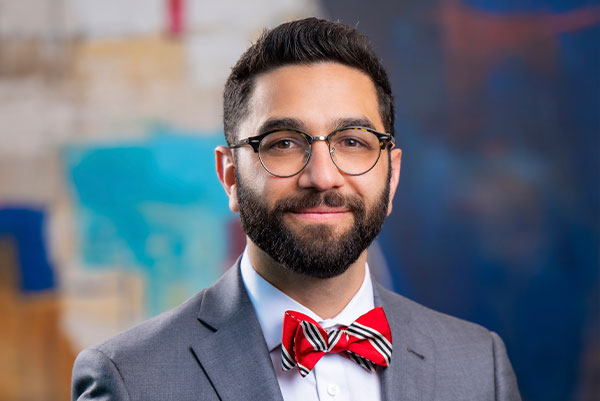Nursing homes should be safe places where elderly people receive the best care and compassion possible. However, sometimes nursing home residents suffer from abuse or neglect. In Georgia, when a nursing home fails to protect or care for a resident, it is important to act quickly and document evidence to help support any claims of abuse. Having strong evidence is crucial in proving any harm that has happened and in making sure those responsible are held accountable. Documenting nursing home abuse can feel like a big task, but understanding the steps to collect evidence can make the process clearer and help ensure justice for loved ones. At, The Gunnels Law Firm LLC, we are here to guide you through the legal process and help you navigate the complexities of your case.
Recognizing Signs of Nursing Home Abuse
The first step in documenting abuse is to recognize signs that something may be wrong. Abuse can take many forms, including physical harm, emotional mistreatment, neglect, financial exploitation, or even sexual abuse. Each type of abuse has its own warning signs that should not be ignored. Physical abuse often results in visible injuries, such as bruises, cuts, or broken bones. Emotional abuse can cause fear, anxiety, or noticeable changes in behavior. Neglect may result in malnutrition, dehydration, poor hygiene, or bedsores, while financial abuse can include unusual bank account activity or missing personal items. Recognizing these signs early can help family members take action to protect their loved ones. Once signs of abuse are noticed, it is essential to begin documenting evidence to support any claims and to help stop further harm.
Gathering Physical Evidence
Collecting physical evidence is one of the most direct ways to document nursing home abuse. Physical evidence can include photos, medical records, and personal items that may show harm. When you notice any signs of physical abuse, such as bruises or wounds, take clear photos to capture the injuries. Make sure these photos show the size and location of the injuries. It is also helpful to note the dates when injuries were discovered, as well as any changes in the resident’s appearance. Additionally, gather any torn clothing or broken personal items that might indicate abuse. If your loved one has bedsores, poor hygiene, or other signs of neglect, take photos to document these conditions as well. Physical evidence like photos or broken items can be powerful in showing that your loved one has been harmed, so be thorough in gathering any items or documentation that could help.

Keeping a Journal of Events
A journal can be an excellent tool for tracking possible abuse over time. In your journal, write down each incident that raises concern. Be specific about dates, times, and what you observed. Include details about any changes in your loved one’s health, mood, or behavior. If your loved one mentions something that worries them, such as mistreatment by a caregiver, make a note of it in your journal. Writing down specific details can provide a clear timeline of events that might show a pattern of abuse or neglect. Even small details can be important, as they help build a complete picture of what may be happening. When documenting each incident, try to be as factual as possible without making assumptions. A well-kept journal can be a valuable record to present if you decide to report the abuse.
Collecting Statements from Witnesses
If other people have seen signs of abuse or neglect, their statements can provide helpful support for your case. Witnesses can include other residents, family members, or even nursing home staff who are willing to speak up. When possible, ask witnesses to write down their accounts of what they saw or heard. If they agree, you can record their statements with their permission. These witness accounts can be valuable in showing that others have noticed the same issues or incidents of abuse. Witness statements can be especially useful if the nursing home denies any wrongdoing, as they provide independent support for the claims being made. Gathering multiple statements from different people can strengthen your documentation of abuse and may help reveal a pattern of harm or neglect.
Requesting Medical Records
Medical records are one of the most important types of evidence in cases of nursing home abuse. These records provide an official account of your loved one’s health and any treatments they have received. If you suspect abuse, request copies of medical records as soon as possible. Medical records can show changes in health, unexplained injuries, and any signs of neglect. For example, if your loved one has bruises or broken bones, the records may note how and when these injuries occurred. In some cases, medical records may also include reports from doctors or nurses who have noticed signs of abuse. Reviewing these records carefully can provide essential details that might otherwise be missed. Medical records are often required in legal cases, so having them early can be very helpful.
I had the pleasure of working against Chris on a fairly complicated case. Chris was professional during the course of litigation, and undoubtedly maintained his clients’ interests as the primary focus throughout. Due to Chris’ efficiency and advocacy for his clients, we were able to resolve the case for a reasonable amount, without spending unnecessary time and expenses. I hope to have more cases with Chris in the future, and would have no hesitation recommending Chris to handle complex personal injury matters.” - Paul T.
Reporting Suspicions to Authorities
When you suspect that a loved one is being abused in a nursing home, it is crucial to report your concerns to the appropriate authorities. In Georgia, you can contact the Georgia Department of Community Health or the Office of the State Long-Term Care Ombudsman. Reporting abuse can help protect your loved one and may also protect other residents from harm. When making a report, provide as much information as you can, including specific dates, times, and details of incidents. You can also share any evidence you have collected, such as photos, witness statements, or medical records. These authorities have the power to investigate the claims and take action to ensure that residents are safe. Reporting abuse can be challenging, but it is an essential step in documenting the harm and seeking justice.
Working with an Attorney
In cases of nursing home abuse, having legal support can be beneficial in ensuring that the abuse is fully addressed. An attorney with experience in handling nursing home abuse cases can guide you in gathering and organizing evidence. Attorneys understand what evidence is most effective and can help you present a strong case. They can also communicate with the nursing home and work to hold those responsible accountable. Legal cases involving nursing home abuse can be complex, and laws regarding elder abuse in Georgia can be difficult to navigate alone. Having an attorney can make the process easier and can increase the chances of a positive outcome for your loved one. An attorney can also advise you on how to continue documenting evidence if more incidents occur during the legal process.
Dealing with Insurance Steps to File a LawsuitRelated Videos
Understanding Georgia Laws on Nursing Home Abuse
Georgia has specific laws aimed at protecting nursing home residents from abuse and neglect. These laws include protections for residents’ rights and outline the responsibilities of nursing home staff. For instance, residents have the right to safe, clean, and respectful care. Nursing homes are required to meet certain standards to ensure residents’ well-being. Knowing these laws can help family members understand what is acceptable in nursing home care and what may be a violation. Georgia also has legal requirements for reporting abuse, and nursing home staff are required by law to report any suspected abuse. Being familiar with these laws can help you recognize when standards of care are not being met and when it may be necessary to take legal action. These laws are designed to protect vulnerable residents, and they provide a foundation for any legal claims related to abuse.
Taking Legal Action for Justice and Safety
When nursing home abuse is documented and reported, the next step may be to take legal action. Legal action can help to stop the abuse, ensure justice for the resident, and prevent future harm to other residents. Filing a lawsuit against the nursing home can hold them responsible for their actions and for failing to provide safe care. Legal action can also lead to compensation for any harm that has been done. Taking legal steps is often challenging, but it can be a powerful way to protect your loved one’s rights and safety. If you choose to take legal action, your attorney can help you prepare the evidence and make sure that the case is handled correctly. Legal cases can be a way to bring attention to abuse and can encourage nursing homes to improve their care for all residents.
Nursing home abuse is a serious issue that affects the lives of many elderly residents. Documenting evidence of abuse is a vital part of ensuring that those responsible are held accountable. By recognizing signs of abuse, gathering physical evidence, keeping a journal, collecting witness statements, obtaining medical records, and reporting to authorities, families can build a strong case for their loved one’s protection and justice. It is essential to act swiftly and thoroughly, as proper documentation can make a significant difference in proving abuse and achieving a positive outcome.
If you suspect that your loved one is suffering from nursing home abuse in Georgia, consider reaching out to The Gunnels Law Firm LLC. Our dedicated team understands the impact of nursing home abuse and is here to help guide you through every step of the legal process. Contact us today to protect your loved one’s rights and ensure their safety.






